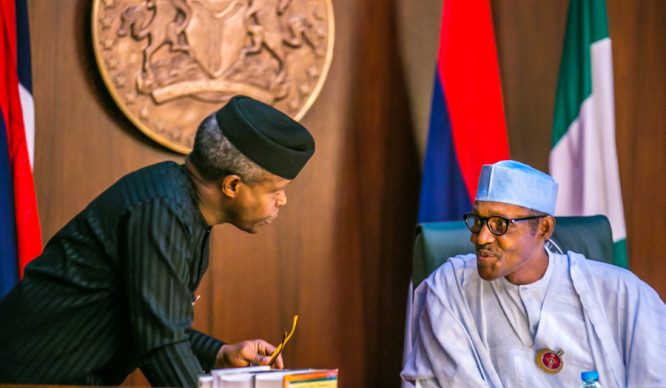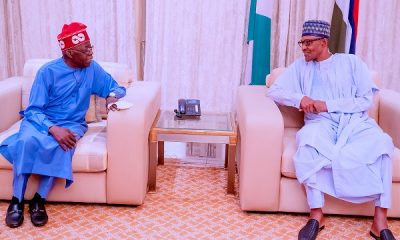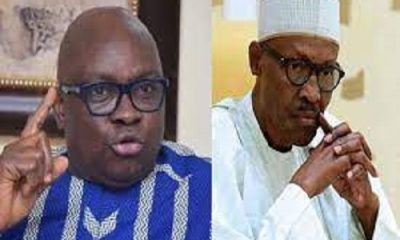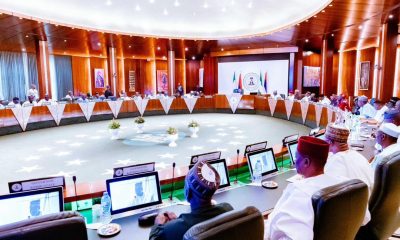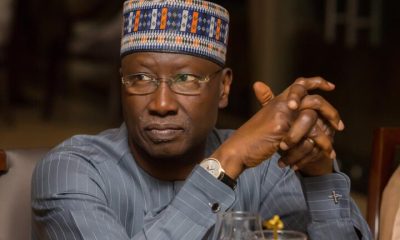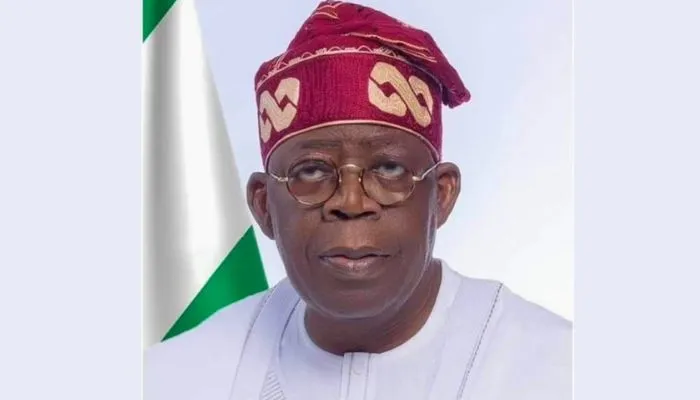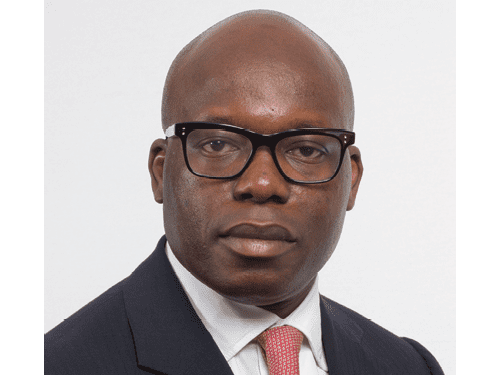The final pay in office for President Muhammadu Buhari, Vice President Yemi Osinbajo, state governors and other political appointees about to leave office may cost the country about N64.72bn.
The report, by The PUNCH, says the figure also covers the pay for ministers, commissioners, National Assembly members, and special advisers.
It, however, does not include special assistants and state assembly members.
The allocations by the Revenue Mobilisation and Fiscal Allocation Commission for salaries and allowances for one month, as well as severance gratuity (300 per cent of basic salary), were analysed to arrive at the figures.
More specifically, aside from the basic for the last month in office, the figure includes allowances, such as hardship allowance (50 per cent of basic salary), Consistency allowance (250 per cent of basic salary), motor vehicle fueling allowance (75 per cent of basic salary), entertainment allowance (45 per cent of basic salary), among others.
As stipulated by RMAFAC, Buhari is expected to get N1.71m, which includes basic salary and a few allowances and N10.54m as severance gratuity.
Vice-President Osinbajo is expected to get N1.01m plus N9.09m severance pay.
The eight special advisers in the Presidency are expected to get N590,957, which includes basic salary and a few allowances, and N5.83m severance pay each.
In total, N51.37m will be spent on the special advisers under the Presidency.
There are 44 ministers under Buhari, consisting of 27 federal ministers and 17 ministers of state.
While each minister is entitled to N6.73m (which includes basic salary, some allowances and severance pay), each minister of state is entitled to N6.5m.
In total, they would get N292.21m, with ministers getting N181.71m and ministers of states receiving N110.5m.
Each special adviser under the minister is entitled to a final pay of N6.42m. With each minister having one special adviser, the total sum of N282.48m will be spent.
Checks indicate that about 327 National Assembly members would not be returning to the office.
This is made up of 76 Senators and 251 members of the House of Representatives.
While the senators will get N7.14m each, the House of Representatives members will get N6.75m each.
In total, the final pay in office of the 327 National Assembly members will cost the country about N2.24bn.
Although governorship elections were held in about 28 states, no fewer than 18 state governors will hand over to their successors on May 29, 2023.
The outgoing governors include Nyesom Wike (Rivers State), Ifeanyi Okowa (Delta State), Udom Emmanuel (Akwa Ibom State), Abdullahi Ganduje (Kano State), Badaru Abubakar (Jigawa State), Bello Matawalle (Zamfara State), Ben Ayade (Cross River State), Okezie Ikpeazu (Abia State), and David Umahi (Ebonyi State).
Other outgoing governors include Ifeanyi Ugwuanyi (Enugu State), Samuel Ortom (Benue State), Darius Ishaku (Taraba State), Abubakar Bello (Niger State), Abubakar Bagudu (Kebbi State), Nasir El-Rufai (Kaduna State), Simon Lalong (Plateau State), Aminu Masari (Katsina State) and Aminu Tambuwal (Sokoto State).
The outgoing governors will be completing two terms of eight years in office on May 28, 2023, except Zamfara’s Matawalle, who lost his re-election attempt.
Each governor is entitled to a final pay of N7.32m while the deputy governor gets N6.96m. In total, state governors will get N131.76m while their deputies would be paid N125.28m.
With each commissioner entitled to N4.42m, a total of 356 state commissioners will get N1.57bn.
Special advisers at the state level are by law entitled to N4.13m each. The 18 states have about 14,529 special advisers in total, which would cost the public treasury over N60bn.
Rivers State is expected to pay out a huge final pay on account of the high number of political appointees engaged by Governor Nyesom Wike, who last year appointed 14,000 special advisers.
The beneficiaries of the end-of-tenure pay also include the eight commissioners.
The Enugu State House Assembly has a total of 24 seats while the executive arm boasts 25 commissioners with an undisclosed number of special advisers.
Governor Tambuwal of Sokoto State was reported to have appointed over 50 special advisers. The governor recently appointed another 15 special advisers to compensate the members of his party who lost out in the Peoples Democratic Party primaries. The state also boasts of about 21 commissioners supervising different ministries.
No fewer than 18 outgoing state governors will retire into lives of luxury with generous pension benefits despite mounting debts and unpaid workers’ salaries.
Investigations showed that the governors, who will hand over to their successors on May 29, 2023, would be leaving behind at least N3.06tn debt for the incoming administrations.
According to data from the Debt Management Office, states’ debts included N2.27tn domestic loans and $1.71bn foreign borrowing.
In a report, a senior economist with SPM Professionals, Mr Paul Alaje, described the pay and benefits as a burden on the states.
He said, “The pension is a burden for any payer, the government and the state. It only shows that people think they don’t have a life outside political offices and that is why such an amount will be budgeted for somebody who is no longer in office and who is not contributing directly to the growth and development of the state… It is unrealistic for this practice to continue. More than 60 to 70 per cent of our states are bleeding in terms of financial boost and this continues every four years.
“What we are doing is, we are deliberately plunging our country into a coma. A time will come and we are close to it when all we are generating as internally generated revenue will just be enough salaries and pensions, and only take care of political officeholders without any infrastructural development. We must condemn in strong terms the spending of the little resources we have to better the lives of politicians at the detriment of the states.”

 News3 years ago
News3 years ago
 Entertainment2 years ago
Entertainment2 years ago
 News3 years ago
News3 years ago
 Privacy3 years ago
Privacy3 years ago
 Sports2 years ago
Sports2 years ago
 Entertainment2 years ago
Entertainment2 years ago
 News3 years ago
News3 years ago
 Opinion3 years ago
Opinion3 years ago
